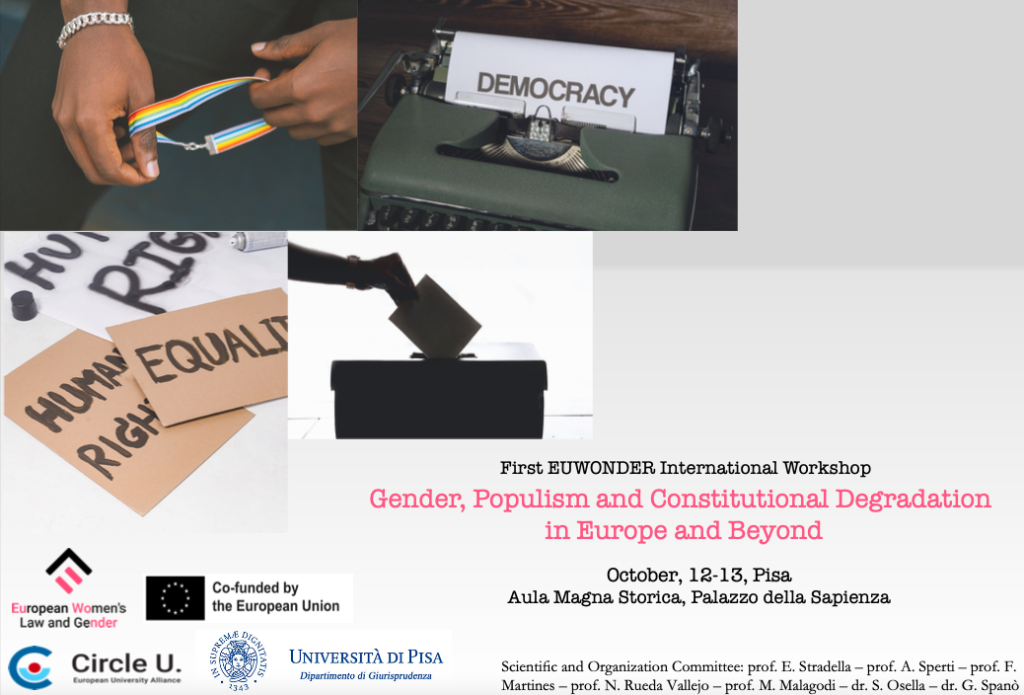
by Natalia Rueda*
The Colombian Constitutional Court in its recent Judgment T-275 of 2022 adopted a very worrying approach in terms of gender perspective and women’s human rights. In fact, it adopts a language that not only does not correspond to the legal technique, but legitimize a narrative that would allow the definition of pregnant woman as no more than a container.
The Constitutional Court ruled in a case related to the paternity leave of a single man who concluded a surrogacy contract. The legal problem was related to the request for recognition of the complete maternity leave (18 weeks) for considering that his case could be subsumed in the norm that recognizes the maternity leave to the father who is in charge of the newborn without mother’s support, either due to illness, abandonment or death. The Court decides to order the payment and recognition of said permit based on the best interests of the girl product of pregnancy, under the understanding that maternity leave is conceived to guarantee the recovery of women, but also to ensure the exclusive care of children by their mother, as a way of allowing the parental relationship to strengthen.
However, the Court notes that it is not possible to recognize two maternity licenses (to the plaintiff and the pregnant woman). In that sense, since the pregnant woman did not contribute the genetic material, the Court recognizes 7 weeks of incapacity for common illness, one of which prior to delivery. This term was considered appropriate to allow childbirth recovery.
In this decision, the Court warns that there is a legislative vacuum in Colombia, not because it has not been tried to fill it, but because all initiatives in this area have failed. There have been proposals for criminalization of practice or partial consent. All these projects are characterized by the almost total indifference for the sexual and reproductive rights of pregnant women, as well as the human rights of children.
Regarding the language, the court ignores the distinction between the genetic mother (the one that contributes the gametes) and the biological mother (the pregnant one, who makes a significant contribution to the “creation” of the new being). In this way, the Court affirms that “taking into account the particular circumstances in which the minor [rectius the girl] was procreated, there is no mother. In the matter (…) the plaintiff rented a belly and, through in vitro fertilization with embryonic transfer, procreated the minor […]. In other words, he hired a woman to lend her body in order to implement embryos resulting from the fertilization of anonymous donor ovules with her sperm. Therefore, in such circumstances, there is no mother” (italics added). This is the basis for the Court to consider the recognition of the complete maternity leave to the father of intention.
The Court also urges Congress to legislate on surrogacy. However, one of the problems with this decision is the language. It worries that the court really believes that a man can procreate by his own, because the question arises: what is the regulation approach that suggests in his decision? One in which, since, as, supposedly, there is no mother, her sexual and reproductive rights are not part of the equation? If it is true that language creates reality, it should be noted that the language adopted by the Colombian Court destroys it. At least in relation to women, thus reduced to simple containers.
But the Court also forgets that the Special Rapporteur on the Sale and Sexual Exploitation of Children has warned about the problems of surrogacy in relation to the rights of childhood (Report A/HRC/37/60 presented before the Council of Human Rights). This report expressly said that commercial surrogacy as currently practiced constitutes the sale of children in accordance with the definition provided for in International Human Rights Law.
Additionally, the report reveals data that confirms why it is facing a practice that threatens the human rights of children and women. In this report it is emphasized that, although in contexts of deregulation the sale of children and abusive practices are frequent, also in regulated contexts, intermediaries “are usually the ones that perceive the greatest benefits and create national and transnational markets”.
Behind this practice there is a billionaire business of people and societies that exercise extraordinary control over the pregnant woman, whose freedom is reduced to choosing who and how they exploit her. In fact, the report affirms that “the general trend indicates that mothers usually come from developing countries […] and aspiring parents of developed countries” (coincidence?); or that “on some occasions, they transfer mothers to third countries to avoid national legislation and establish “babies hatcheries.” And about intermediaries it is also clear that there are “specialized clinics that have been denounced for participating in newborn sales networks” (altruism?).
Currently, by virtue of the decision of the Constitutional Court, different proposals are being discussed to allow subrogation.
*Professor at Externado de Colombia University




